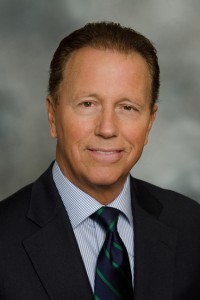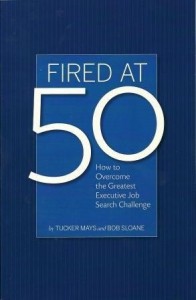
Over the age of 50, Ivy League education, resume stacked with experience and references, yet out of work. Sound familiar?
Today, more than 6.5 percent of U.S. workers between the ages of 55 and 64 are unemployed, compared with a roughly 3 percent unemployment rate for that particular demographic just five years ago.
What”™s more, it is taking an increasingly long time for unemployed Americans to find work the older they get. For the 20 to 24 age group, the average jobless stint is 34.6 weeks; for those between the ages of 55 and 64, the average unemployment duration is 56.6 weeks, according to the U.S. Department of Labor.
But two Darien employment specialists say it”™s not all doom-and-gloom for former executives and high-level employees who currently find themselves without work.
“There”™s an awful lot of negativity out there, and having a positive attitude and believing you will find a good job in a reasonable time is imperative,” said Tucker Mays, co-founder of OptiMarket L.L.C. “We like to say, there are 13 million businesses in America. You only need to find one and one is always looking for you.”

Mays and business partner Bob Sloane were both in the midst of searching for new careers in 1995 when they teamed up to form a support group for out-of-work executives, called Executive Forum.
That support group has since morphed into OptiMarket, a consultancy tailored specifically toward former executives who now find themselves jobless.
“We realized that A, there was a need for this kind of guidance, and B, we really enjoyed it,” Sloane said.
Mays said that the two recognized a number of mistakes that were being made by job-seekers over the age of 50, which led the two to publish a book this past October, “Fired at 50,” detailing their experiences and advice.
“There are just so many mistakes that executives over 50 and individuals over 50 make that it was also important for us to pass along what we learned,” he said.

Chief among them is a propensity for over-50 job seekers to rely on posted openings, recruiting agencies and close friends instead of trying to establish new connections.
“You need to understand that the methods for a successful search have changed, particularly when you reach the age of 50,” Mays said.
He said that recruiters only account for about 10 percent of all openings and favor those who currently have jobs, that job postings are often viewed by thousands of potential applicants, and that when it comes to close friends, “rarely do they have a job waiting for you.”
“You should be spending 80 percent of the time networking with people you don”™t know. Most people have it reversed,” Mays said.
Sloane said that he and Mays advise clients to be proactive, rather than reactive. “The traditional ways that people think they”™ll get a job are reactive ”“ reacting to recruiters, reacting to published job leads. They most effective way to get a job is through proactive networking ”“ in our practice we call it referral marketing.”
By taking a new approach when searching for openings and by emphasizing the leadership qualities that made former executives successful in the first place, Mays and Sloane said that their clients and others in the same predicament can overcome technological deficiencies and other challenges.
“It starts with recognizing the skills that you do have and identifying where those skills are most needed now,” Sloane said.
Oftentimes that leadership experience is in higher demand at smaller, up-and-coming companies, he said.
“For many executives who have come from big corporations, that normally means looking to smaller companies, and in some cases if their industry is contracting, it means transferring those skills to other sectors that need them now.”
In the latter case of workers who are weighing a move to a new business sector, Mays said short-term consulting assignments can be valuable for those workers as they try to adapt their skill sets.
Additionally, he said companies will often favor candidates with leadership experience compared with specific technical know-how.
“It”™s one thing to be technically good at understanding software and technology, but it does no good if you can”™t lead people to more efficiently transform (the company) into a better operation,” he said.



















